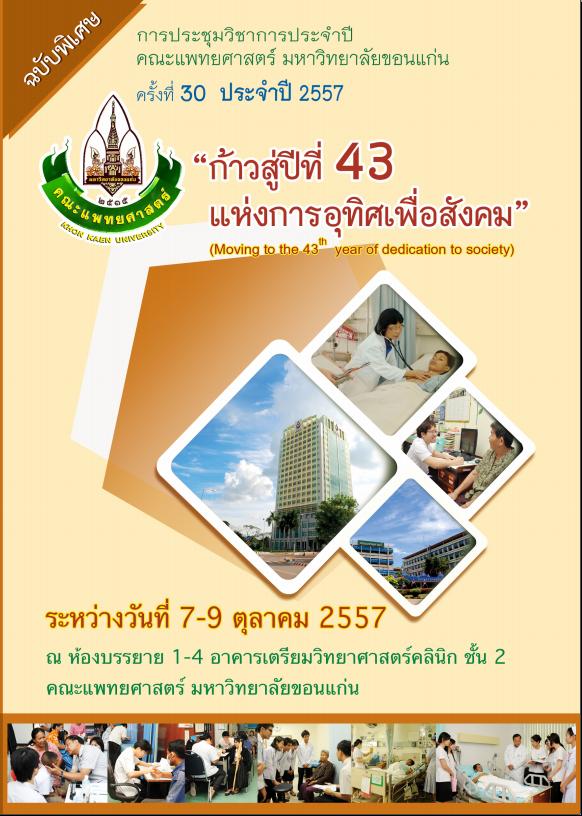Effect of Rice Bran Protein Hydrolysates on Oxidative Stress and Vascular Dysfunction in High-Carbohydrate, High-Fat Diet-Induced Metabolic Syndrome Rats
Keywords:
Rice bran protein hydrolysates, Oxidative stress, Vascular dysfunction, High-carbohydrate, high-fat dietAbstract
Background and objective: Prolonged oxidative stress associated in metabolic syndrome (MS) serves as a key signaling event in alteration of the cardiovascular function. It has been demonstrated that peptides-derived from Hom-Mali Thai rice bran protein hydrolysates (RBPH) possess strong antioxidant with angiotensin converting enzyme (ACE) inhibitory activity. The present study aimed to investigate whether RBPH supplementation alleviates oxidative stress and vascular dysfunction in a rat model of MS induced by a high-fat, high- carbohydrate (HFHC) diet.
Method: Male Sprague-Dawley rats were induced MS by feeding a HFHC diet with 15% fructose in the drinking water for 16 weeks. Concomitantly, the normal control rats were fed with standard chow diet and distilled water. Rats in the MS and control groups were orally administered with RBPH (250 or 500 mg/kg) or vehicle for the last six weeks of experiments.
Result: Rats fed with HFHC diet for 16 weeks developed hypertension, vascular dysfunction, impaired glucose tolerance and oxidative stress. Supplementation with RBPH attenuated hypertension, improved vascular function and decreased blood glucose. RBPH also alleviated oxidative stress by suppression of vascular superoxide production as compared to the MS controls (P<0.05).
Conclusion: These findings suggest that RBPH might have auxiliary therapeutic potential for improvement of vascular function in MS-induced by a HFHC diet. The plausible mechanism of RBPH might partly via its antioxidant and antihypertensive effects.




